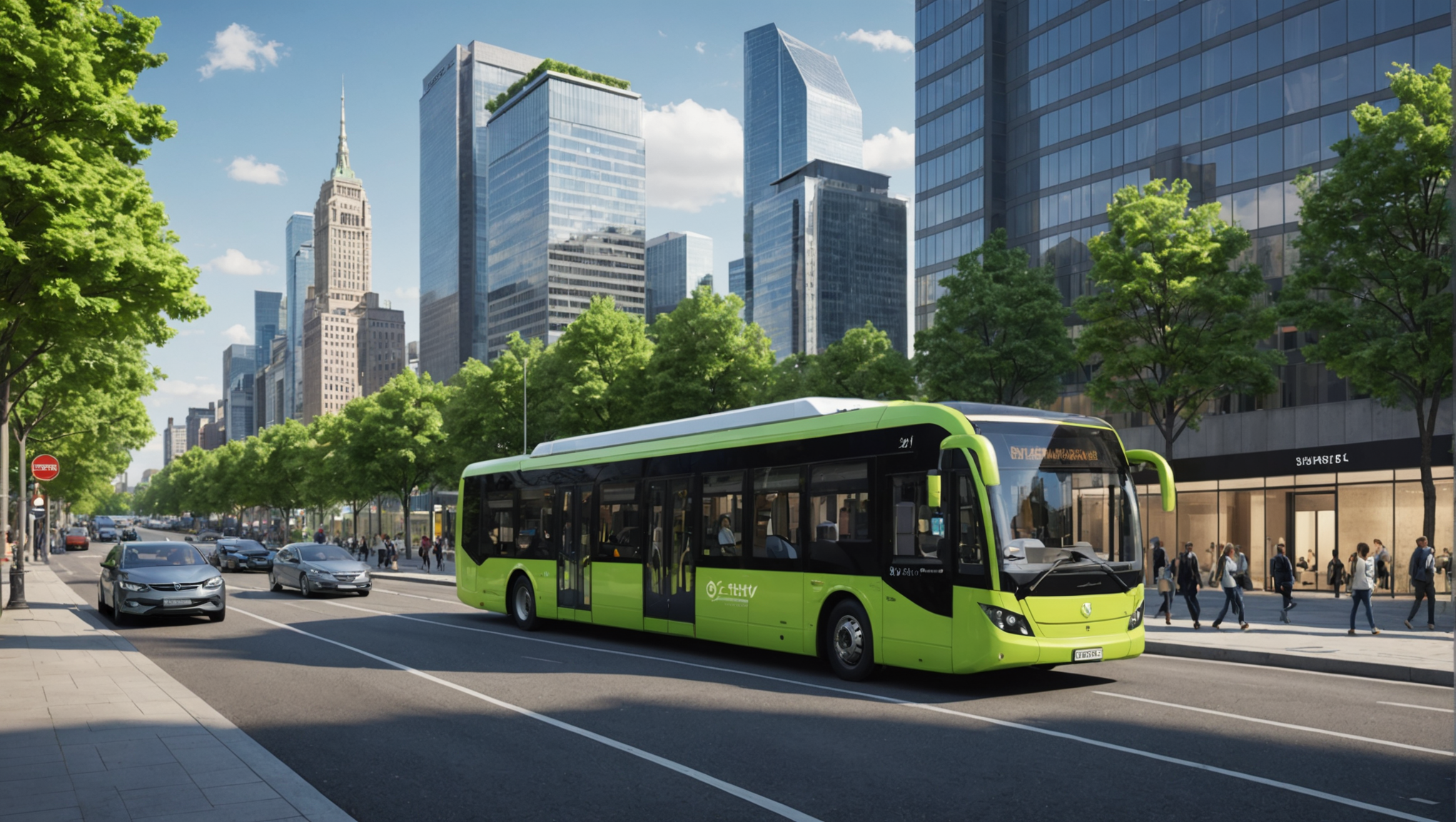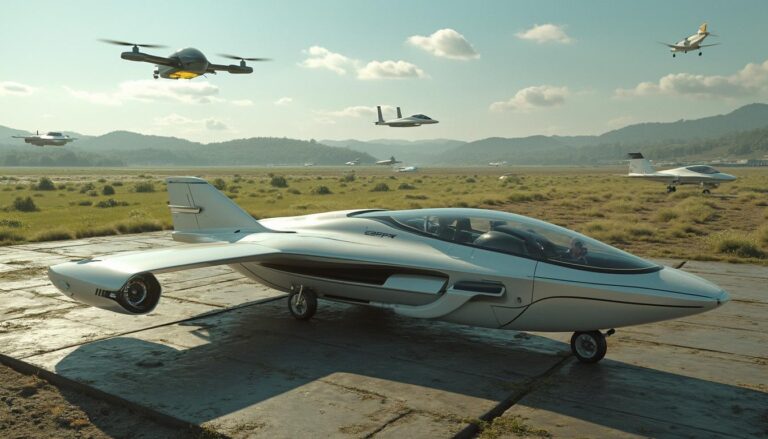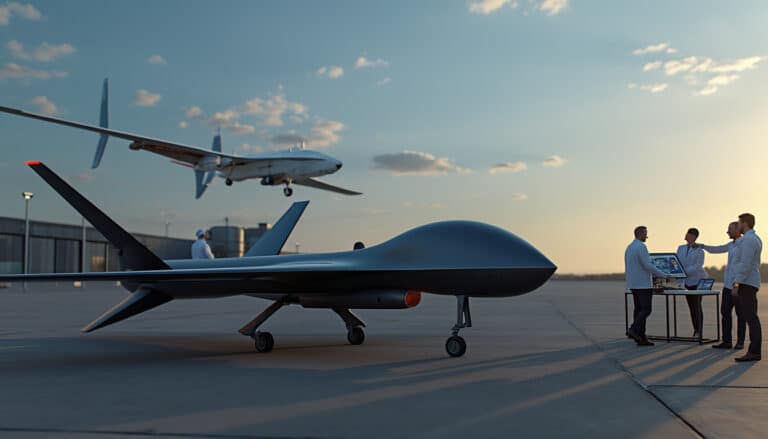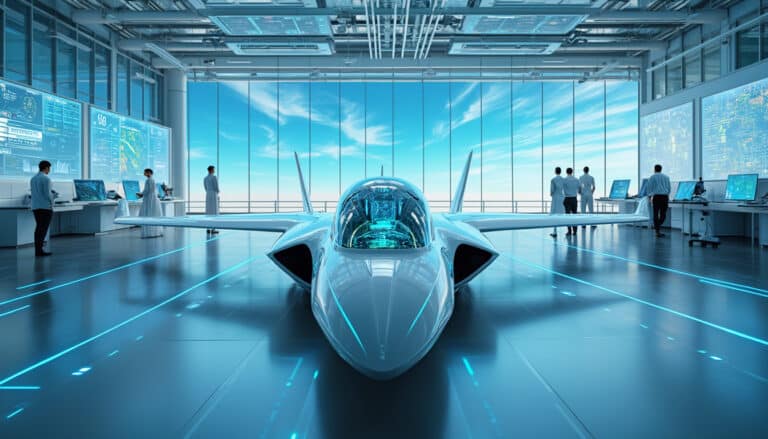The skies of tomorrow could well be lit up thanks to the fascinating advances in hybrid propulsion technologies. Combining internal combustion engines with electrical power systems, these innovations present themselves as a promising response to the critical environmental issues affecting our planet. By integrating carbon-free energy sources, these hybrid systems aim to reduce CO2 emissions while optimizing the energy efficiency of transport, whether land or air.
In the aviation sector, for example, the objective is clear: reduce by 30% the fuel consumption while integrating sustainable solutions that respect our ecosystem. Revolutionary projects, such as those of the NASA and GE Aerospace, illustrate this evolution well, developing hybrid-electric engines that could transform commercial aviation. The prospects of increased autonomy, with vehicles capable of traveling between 80 and 120 km in electric mode, are not just a promise, but a reality that is emerging. With these technologies, the sector is transporting our dreams towards a less polluting and more sustainable future.
At a time when the planet reminds us of the urgency of adopting less polluting solutions, hybrid propulsion technologies position themselves as an essential answer for a sustainable future in the transport sector. The combination of traditional internal combustion engines with electric power systems is starting to gain momentum, not only in the automotive industry, but also in aviation and shipping.
Table des matières
ToggleThe promise of efficient hybrid propulsion
Hybrid propulsion systems offer several tangible benefits that will contribute to the evolution of transportation. First, they allow greater autonomy, whether for freight vehicles or regional aircraft. With more powerful batteries, these systems can achieve a range of 80 to 120 km in pure electric mode, making daily use more environmentally friendly. This technology paves the way for a significant reduction in fuel consumption and emissions. CO2, with an objective of 30% reduction for regional aircraft by 2023.
In addition, the marriage between propulsion technologies and renewable energies presents new perspectives. By integrating carbon-free electricity sources, hybrid vehicles can further reduce their carbon footprint. Innovative solutions, such as the HyTEC project of the NASA And GE Aerospace, aim to revolutionize commercial aviation through the development of hybrid-electric engines, thus increasing energy efficiency by 25% for short-haul aircraft.
Strategies for adopting hybrid propulsion
For the transport industry to move towards a sustainable model, some practical strategies must be put in place. First, it is important to initiate a dialogue between the different players in the sector: manufacturers, governments, and end users. These exchanges will make it possible to share best practices and the financial arrangements necessary to support the adoption of hybrid technologies.
It is also essential to encourage innovation through public policies. Financial incentives, such as subsidies for the purchase of hybrid vehicles or the creation of suitable charging networks, can lead consumers to choose less polluting solutions. In addition, the integration of suitable infrastructure into urban plans is essential to make these technologies accessible and practical for the general public.
Finally, awareness programs can help educate the population about the benefits of hybrid systems. Such initiatives can encourage consumers to choose hybrid vehicles not only for their environmental friendliness, but also for their long-term economic benefits.
A vision of the future for individual transport
Innovations in the field of hybrid propulsion technologies outline a promising future, particularly for individual transport. The question arises: is this future already upon us? Plug-in hybrid vehicles are gradually becoming a part of our daily lives, offering a concrete alternative to traditional models. By integrating electric power systems, these vehicles reduce their dependence on fossil fuels while providing sufficient autonomy for daily journeys.
The nesting of propulsion technologies with advances in batteries and electrification could revolutionize our conception of transport. For example, based on current research, it is likely that within a few years, planes of the future are equipped with hybrid systems that will optimize energy consumption while offering unrivaled performance, both in speed and comfort.
In terms of maritime transport, hybrid systems also show promise. These innovations, coupled with electrical power, could transform ferries and other vessels. ABB’s hybrid power and propulsion system, for example, is already making ferries more sustainable. This demonstrates the potential of the maritime sector to embrace this energy transition.
Beyond technical devices, the dynamics of high altitude flights could also experience a revolution thanks to hybrid technologies. By making these flights more efficient, not only in terms of costs, but also in terms of environmental impact, we will be able to rethink our relationship to distance and global connectivity. Aeronautical innovations not only improve performance, but also open a crucial debate about the future of travel in the skies.

🚁What is #hybrid #propulsion❓What opportunities does #hybridization offer❓
— Safran (@SAFRAN) January 26, 2022
🎧Listen to Bruno Bellanger, Vice President for Programs at @SafranHCEngines, describe the first applications on #helicopters.#AvGeek #aviationlovers #aviation
➡️https://t.co/h3KDHkyI3a
Frequently Asked Questions about Hybrid Powertrain Technologies
What are hybrid propulsion technologies? Hybrid propulsion technologies combine motors with internal combustion traditional with electrical power systems, thus making it possible to improve energy efficiency and reduce polluting emissions.
What are the advantages of hybrid propulsion systems? These systems offer environmental benefits considerable by reducing emissions of CO2, especially when the electricity comes from carbon-free sources. They also allow a accredited autonomy thanks to their powerful batteries.
How can hybrid propulsion transform aviation? Hybrid electric propulsion could improve 25% efficiency aircraft, thus contributing to a brighter future sustainable for commercial aviation.
What projects are underway for the development of hybrid engines? Initiatives, such as those of the NASA and of GE Aerospace, are focused on creating hybrid-electric engines that could revolutionize commercial aviation.
Which propulsion technologies allow efficiency gains? Various innovations, ranging from CNG has hydrogen, are currently being researched and can help improve transport efficiency, while reducing their environmental impact.
What is the aviation industry’s main goal when it comes to sustainability? The industry aspires to reduce 30% fuel consumption and the issuance of CO2 in regional aircraft by integrating advanced propulsion technologies.
























